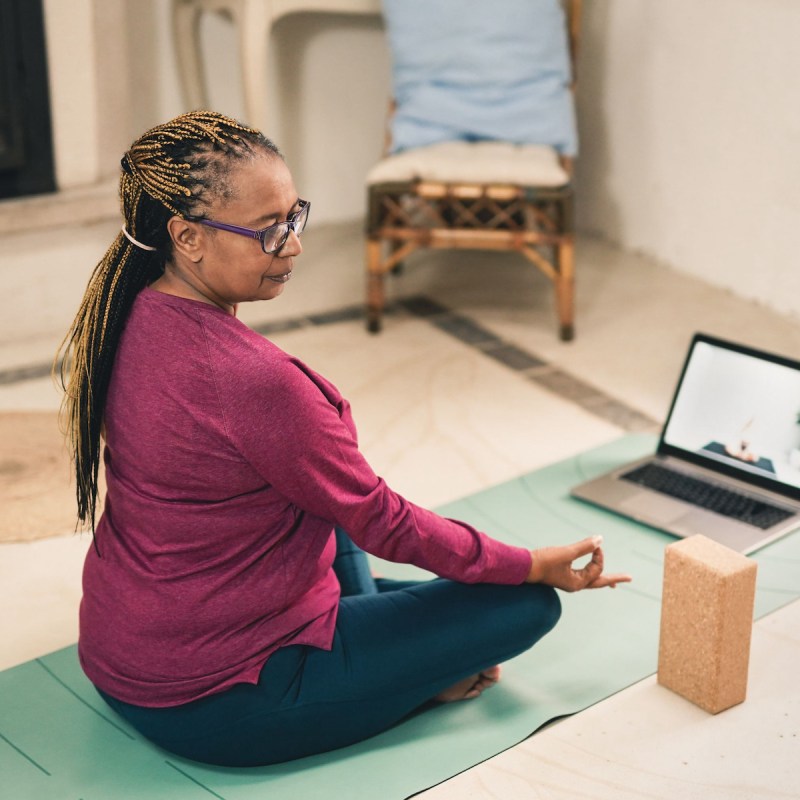
So let’s just be real for a minute: Sure, the thought of retirement is appealing and most people look forward to it with delight. But if you’re truly honest with yourself, there might be a flicker of apprehension there as well. For years, you’ve been preparing financially and anticipating the day that you’re free to do exactly what you want, on exactly the schedule that you choose. But let’s not forget, retirement also means leaving behind your career, the one that you have been building and nurturing for decades. Furthermore, you’re relinquishing your identity, a social network, a purpose, and a fully structured day.
Videos by TravelAwaits
While some of you might be thinking that this is exactly what you want, others might consider this a lot to let go of all at once. Undoubtedly, everybody’s experience of retirement is different, and each person handles it uniquely. Even the most enthusiastic retirees will acknowledge that retirement can really shake up your life, often in ways that you hadn’t anticipated.
Since retirement is one of life’s biggest and most stressful transitions, it should be a time when you take extra good care of yourself. As a certified retirement coach, I advise meticulous attention to your needs and feelings during this upheaval. It’s an investment that can lead to a significantly less stressful retirement.
Self-Care Is Not Selfish!
(But It’s The Missing Ingredient In Many Folks’ Retirements)
Clients in my retirement coaching practice describe feelings that range from elation to dread when they consider their approaching retirement. Initially, the escape from the daily grind may be a welcome relief, but many are surprised at the emotional impact retiring has on their lives.
When the novelty of the honeymoon stage of retirement wears off, you may start to miss some of the things that you appreciate about your job. Work provides a clear identity, a defined purpose, a sense of belonging to something, status, and self-respect. When work isn’t there to provide these things that most of us value tremendously, it’s not surprising that you might feel a bit untethered when you retire.
People experience a whole range of emotions, but the most common reaction that I hear about is simply anxiety — and the uncomfortable feeling that comes with not knowing what lies ahead.
Having An Optimistic Outlook Is Just A Starting Point
Dealing with a major change like retirement can take a toll on both your physical and mental health if left unchecked. Having an optimistic outlook toward a new life is a great starting point. Make an effort to accept that you’re on a transitional journey into the unknown, and acknowledge any emotions you might be feeling without judgment.
Self-care is important at all stages in life but becomes even more significant as you enter the later stages of life with the inevitable physical and emotional changes that follow. Practicing good self-care, particularly in times of transition, will help reduce stress and improve both your mental and physical health. Taking care of yourself helps provide the mental resilience needed to manage this new life stage.
Since practicing self-care in any area of your life can positively influence other aspects of your life as well, let’s look at a few different areas that you can focus on.

1. Social Self-Care
Great relationships with family and friends create a better quality of life and go a long way to prevent loneliness and isolation. Since many retirees describe boredom and loneliness as a significant concern, staying socially connected is crucial to your well-being. Social connectedness offers a sense of belonging, provides support, adds meaning to your life, and ensures you always have someone to do things with. Some things to consider when it comes to your self-care:
Nurture And Grow Your Support System
Be willing to give and receive support as your needs change over time. Be clear on who is part of this support system and the roles each will play. Some supporters might be more on the emotional side, and engage with you on a deeper, more intimate level.
Other relationships might be more transactional in nature, such as someone to assist you in carrying groceries, mowing your lawn, or offering to drive to appointments. Having a strong support system makes it easier to ask for help when you need it!
Engage In Positive And Regular Communication
Doing this, especially with important people in your life, maintains connection and prevents feelings of isolation and loneliness. Good relationships thrive when you spend time and energy on them.
Prioritize Safe, In-Person Interaction
In-person time with significant people in your life can be hard to come by, particularly in light of COVID. Any safe, and in-person contact that is possible can provide a sense of intimacy, connection, and empathy. Strong relationships create a deep bond between people so they feel valued, heard, and understood. This type of trusting relationship offers mental and physical benefits that go far beyond the exchange of positive energy experienced in the moment.

2. Personal Self-Care
Personal self-care involves honoring your true self, engaging in activities that uplift you, and living in a manner that reflects your personal identity. Retirement offers a wonderful opportunity to finally put your own needs first and discover who you want to be and what you want to accomplish in this new chapter. Here are a few things to consider when it comes to personal self-care.
Do Things You Love
Participate in hobbies, activities, sports, and groups that are meaningful and pleasing to you.
Take The Time To Discover Your Core Values
As much as possible, live your life in alignment with your values. Spend time doing activities that support the things that are most important to you. This might include volunteering, spending time with family, or continuing with your education.
Spend Time Doing Things You Are Passionate About
Or dive into something you’ve always wanted to do but haven’t made time for. It’s now or never! This is the time to learn to play an instrument, learn a language, or take that trip!
Create A Living Environment That Feels Safe, Secure, And Stable
This might involve moving to a smaller home, installing safety features like grab bars in your current home, or simply organizing your space so that it is manageable and accessible. A healthy and safe living environment is vital to your peace of mind and tranquility in your personal space.

3. Emotional Self-Care
The practice of emotional self-care involves nurturing, processing, and managing your feelings. Given the huge transition that retirement brings, you might experience feelings of anxiety, sadness, or even depression. Some people feel a sense of loss of identity or purpose, while others feel isolated and adrift. You can learn to cultivate positive attitudes and manage your emotional state if you consider some of the following.
Hone Your Stress Management Techniques
Yoga, meditation, massage, or other spiritual practices can help you achieve a calm mental state.
Spend Time In Nature
Doing so reduces irritability and increases feelings of calmness. It can provide an appreciation of beauty and awe in the world around you.
Practice Compassion
Toward yourself and others. It can increase your feelings of happiness, optimism, and connection to others. Avoid judging your feelings. Allow yourself to feel what you’re feeling with acceptance.
Journal
Doing so can help you stay present and mindful. It can also be emotionally cathartic and a means of processing the various emotions you might be experiencing.
Have Faith
In yourself! Believe you are capable, resourceful, and confident.
Get Comfortable Asking For Help
We’ll all need help at some time or another, which is why nurturing and growing your support system (see above!) is so important, as is practicing asking for help when you need it.

4. Physical Self-Care
Given the inevitable physical changes and decline that are bound to occur as we age, plan to make physical activity and exercise part of your routine. Regular physical activity has been shown to improve both physical and mental health. Ultimately, the goal is to maintain independence for as long as possible, and attending to your physical health with regular exercise and healthy nutrition is vital. A few things to consider for your physical self-care:
Sleep
It’s essential and has the ability to restore energy levels. It heals both physical and cognitive damage, and it also helps improve memory and concentration.
Exercise
It prevents chronic disease, improves mood, and lowers your risk of injury by helping you maintain strength, flexibility, and balance.
Proper Nutrition
Nutrition contributes to better quality of life by providing energy, weight control, and potentially preventing/managing some diseases such as osteoporosis, high blood pressure, and diabetes.
Leisure Activities
Whether it’s golf, swimming, skiing, hiking, pickleball, stand-up paddle boarding — and the list goes on! — engage in leisure activities that rejuvenate you, refresh you, and make you smile!
Without question, retirement presents a whole new set of challenges and rewards. Most of us have worked through various different transitions in our lives and found ways to successfully navigate them. It is a time to celebrate and say goodbye to one chapter of your life and move on to the next.
Your successful retirement will be the result of much self-exploration, and it will evolve over time. You don’t have to have all the answers today, so focus on progress, not perfection! Remember, this is your unique journey, and everyone will experience this transition differently. Practice the art of self-care and reap the benefits. Be kind to yourself and enjoy this ride called retirement!
